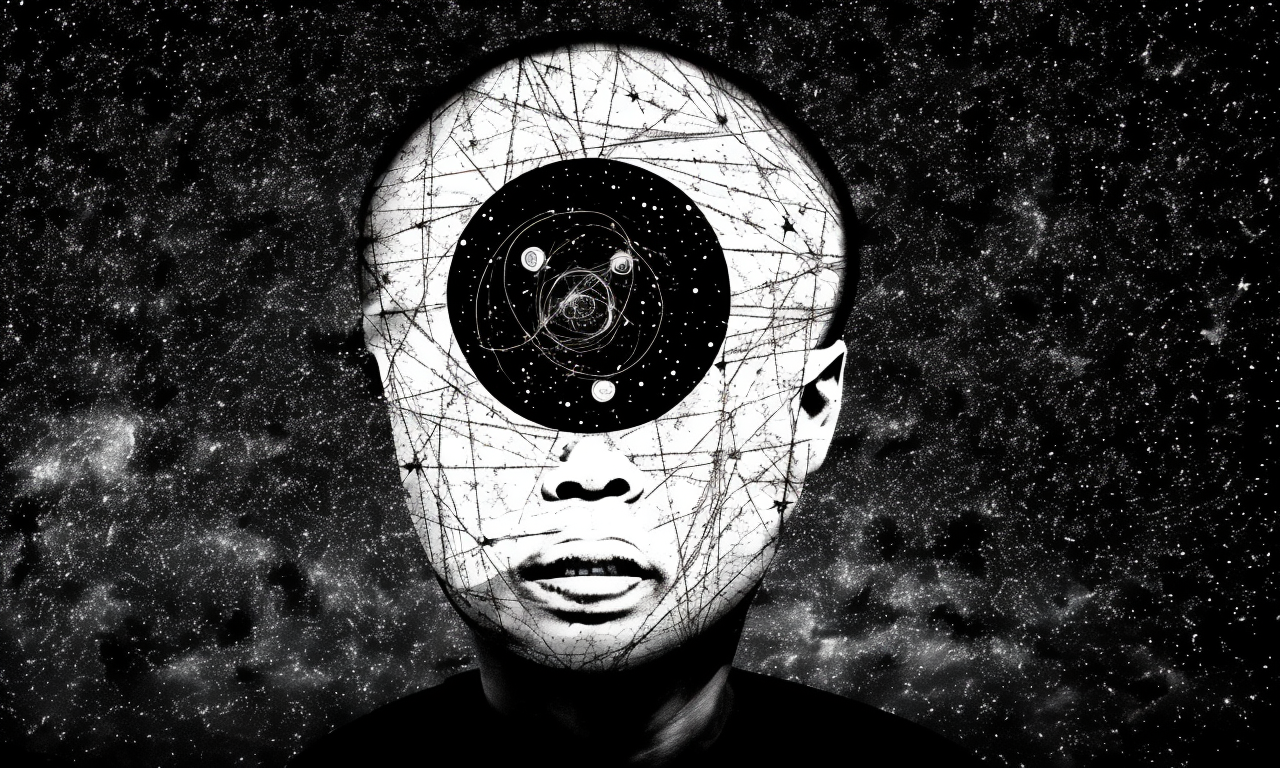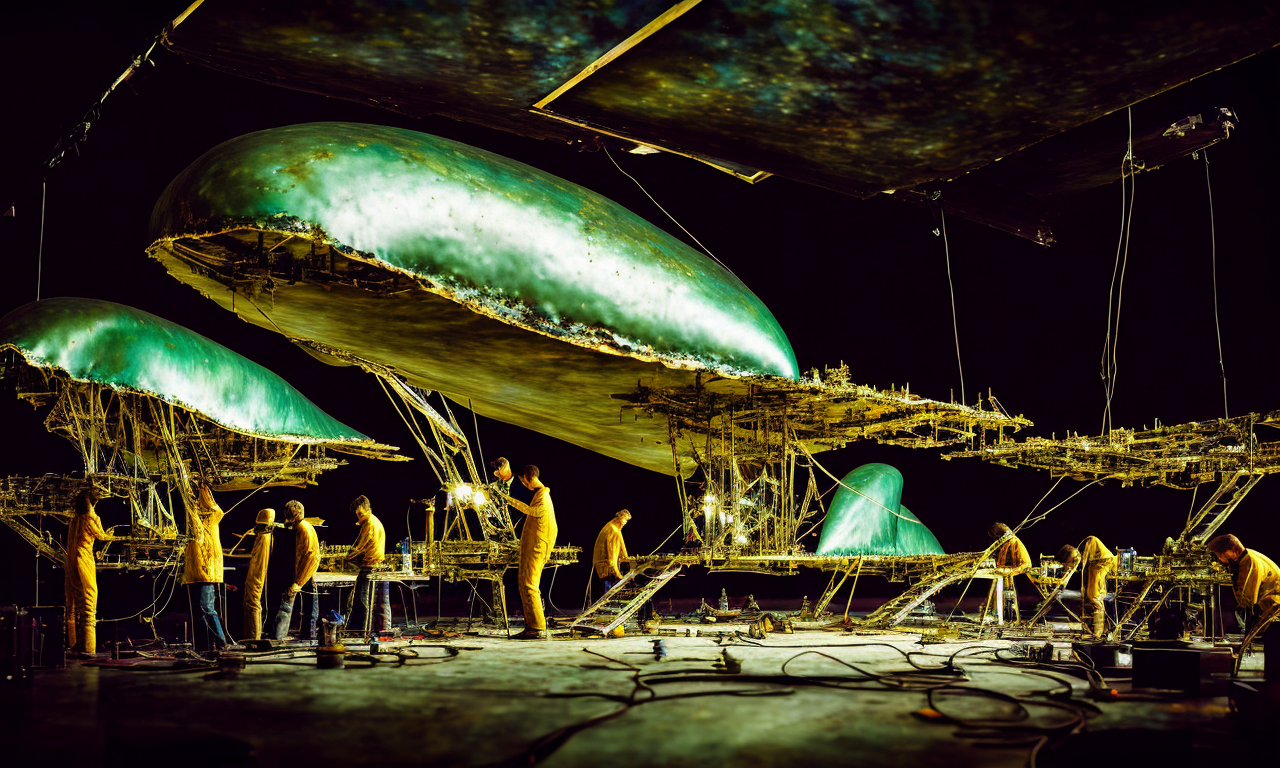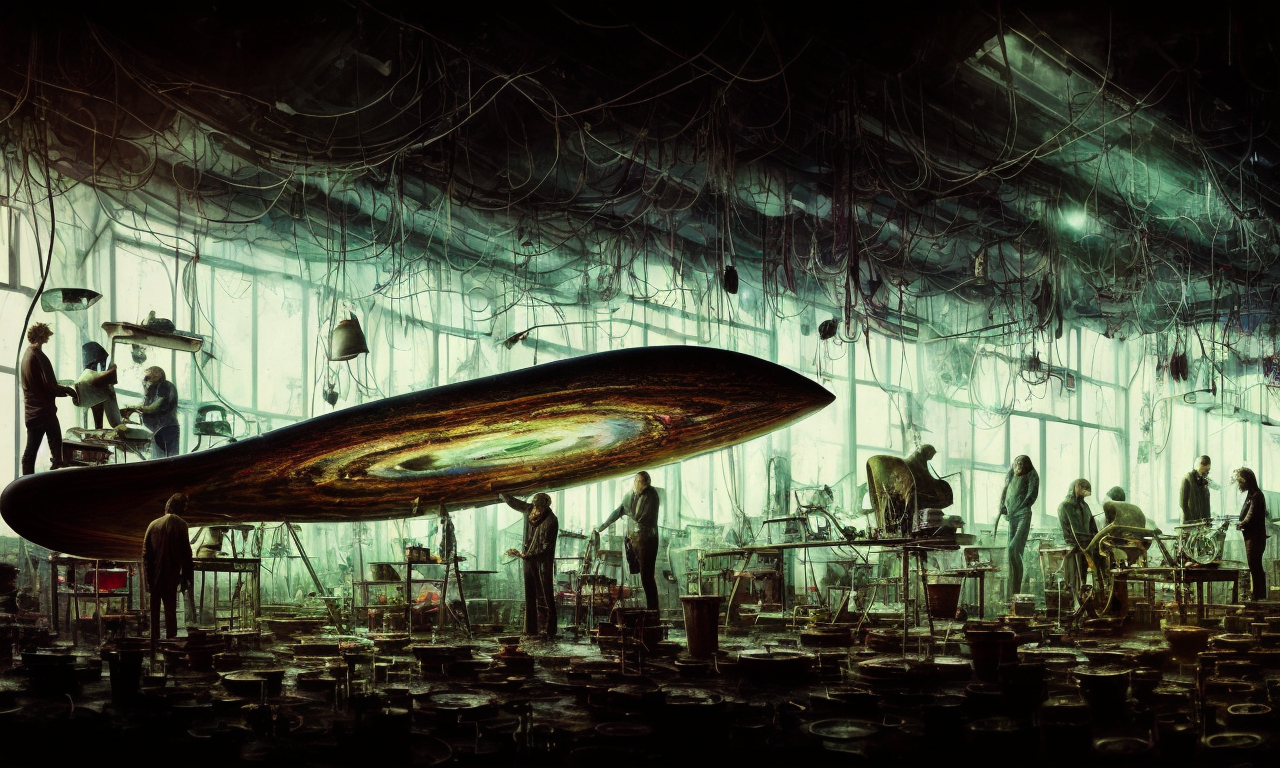Lament of the Rogue Geoengineer
An Intercepted Transmission in which an Unmasked Rogue recants their scorned (al)chemical Efforts to patch and repair a Broken World.

‘whereas... cultic laments were meant to prevent communal catastrophes, the many private prayers aim at reversing the catastrophe before it was too late: the turning away of a god was felt on a personal level like an illness that had to be cured.’ Anne Löhnert, “Manipulating the Gods: Lamenting in Context”
‘we have already crossed various tipping points … [and] everything from social practices, technologies, and truth to plants, animals, and places have become shaken out of their normal frameworks. We are free to move on new planes. And this should compel us to shift our perspective a bit. Instead of lugging around old political frameworks for no reason, and then trying in vain to make our new realities conform to them, we now have the opportunity to stake out entirely new possibilities for ourselves and each other.’ Stephanie Wakefield, Anthropocene Back Loop: Experimentation in Unsafe Operating Space.
LISTENER’S NOTES, COMMENTARY: Like the numbers stations of some earlier era, the recording is an endless loop. In our era of software-defined radio, there’s a computer box somewhere out there, serving as a repeater or relay. The purpose or intent, however, is harder to grasp. What is it? A communique, confession, testimonial, or lament? Linguistic anthropologist James M. Wilce defines the lament as a “discursive and musical genre linked with crying and with funerary observances”. A way of grappling with loss and change, the lament comprises “tuneful, texted weeping”, aestheticising and transforming suffering into something else. A response to “cracks in the moral structure of local universes”, confronting the “primal and perpetual fear of divine abandonment”, the lament allows communal institutions to neutralise and surmount this fear, metabolising bad memories, future uncertainty, and the spectres of negative outcomes. (see Löhnert)
What is its purpose? Its intended audience? What the speaker trying to achieve? From the information provided, it seems like they are looking back on their actions to initiate a solar geoengineering programme using stratospheric aerosol injection, from a vantage point far after the event and reflecting on its aftermath, implications, and effects.
The speaker is unhurried, even detached. Where the words betray a clear emotion, detailing events of no small significance, there is little sense of this in their diction and delivery. Their voice is odd, anomalous, skipping lightly over the words. Theirs is a reedy, mid-Atlantic accent, pebble-smooth, stripped of any traces of its geographic or cultural origin. It remains unclear whether or not the voice is that of the individual concerned, the author of these words.
I feel obliged to disclose that, having listening to the relevant recording dozens of times in the process of drafting this transcript (see following), I have been unable to shake the sense that something is not quite right. In quieter moments in the past few days, I have found myself wondering if the speaker is “fake”, for want of a better word, an artificial conduit, channeling the words of another. Straining to concentrate, I think I detect traces of artifice; the absence of emotion, scant pauses for breath, a disconcerting and unnatural evenness of tone. I leave it to the reader to decide what, if anything, to make of this suspicion.
Finally, it appears that those dispatched to retrieve the perpetrator provided means to record and distribute this recording, this lament, even if the words have been read by another. If the account provided is to be trusted, I would urge you to consider what their goals or interests might have been in doing so, and why they would have permitted, or wanted, these words to reach our ears.

RECORDING BEGINS: My intentions were plain; once discovered, I did nothing to disavow our plans and actions, all that we had achieved. Certainly, there are those who say we moved too fast, that the entire effort was a mistakeand we should have stayed our hand.
Close to two years in, our actions were exposed by a multinational team of journalists; our aliases discarded, cast aside. There are those among my team who suspect a mole, but it was always going to be difficult to sustainthe necessary air gap; with traces of the work written in materials procurement and budget items.
Exposure was the word; we were stranded in the firing line, vulnerable, our armature pierced. The Nordic states shot down one of our aircraft. In peril, imperiled, until we pointed out the damage that could be done were we to stop. “The Hobgoblin of Termination Shock”, we called it, among ourselves; the detail that a cessation of activities wouldonly worsen the situation. This was the dependency, with scant opportunities for abstention or a simple substitution. Instead, we were all sprinting to remain standing still; repairing and patching; holding a clawed-back window of latitude, an inch of wiggle room, andat no small cost. For more on the possible risks of termination shock, see Parker and Irvine.
Apress conference from international waters, images transmitted from the belly of a cargo plane. An attempt to wrest control of the narrative, stained in my memories as a profound and singular error of judgment. In the aftermath, there were no opportunities for truth and reconciliation, no sharing of stories, of experiences. Instead, viewpoints proliferated.
Fury and thunder from voices in the Euro-American hinterland. For the conspiracy theorists and self-described lateral thinkers, a belated confirmation of their uneasy, sweat-slicked dreams; terrors of the cockpit and the control room. Noise spreading, rippling through the invite-only messaging groups of the suburbs, exurbs, trailer parks, backwoods. It had been convenient for us to picture them as squirrel-shooters, the haters and the losers; pale hordes sheltering beneath their barred battle standards. For these opponents, the Great Work was an eruption of their worst fears, a tearing or shredding of frames, rupturing boundaries between worlds. A chorus of accusations; they cried false flag, claimed we were puppeteered by any number of sovereign enemies. They believed they would rip off our masks to find the face of another, gurning and grimacing. They cast us as emissaries of an unending night; architects and perpetrators of some fall from innocence. But they were to be disappointed.
Much of this opposition developed from chemtrail believers, which emerged in the 1990s US, claiming elites were engaged in a covert, large-scale programme of weather and climate modification, with serious consequences for health and the environment. Though policymakers have tended to downplay such fears as irrational and fundamentally misguided, they often reflect local political anxieties, concerns about unaccountable power, elite impunity, and the lack of deliberation or inclusion, and as such, should not be casually dismissed. (see Cairns, Bakalaki)
The main beneficiaries of our flights were those beyond the border, beyond the chain-link fence and sea walls. We believed ourselves to be acting on behalf of those peeled from their ancestral homelands, their island chains, separated from the bones of their forebears by a rising tide. I felt comfortable invoking their struggles. There was lots of talk about “loss and damage”, back then — but who was lost, what was damaged?
[…]

Startingout, I relished the role, seeing it as a proving ground, a fresh arena for self-definition, a crucibleburning off impurities of character and intent.
Scholars and researchers spoke of “norm entrepreneurs”, brazen figures making a deliberate effort to create, shift, or sustain shared social norms. I saw us as first movers, taking the lead in redefining the contours of the possible. I didn’t know what form it would take, but even then, I knew we could shunt things into a fresh equilibrium, some entirely new configuration. And in our case, that meant breaching the Tollgate Principles, punching through staid, stuffy best practice like a paper wall. The work of Stephen Gardiner and Augustin Fragnière, the Tollgate Principles emphasise considerations of justice, respect, and legitimacy in geoengineering governance.
Looking back, I truly believed that, by acting at the scale of the world, we would force others’ hands. Coming clean would firea starting pistol, goading and galvanizing, coaxing forth latent capacityfrom the system. We talked about it as a siren or wake-up call, sufficient to rouse theatre-goers from their drooling reverie in asmoke-filled screening room. A pressure to act when all else had failed, our own cries of alarm smothered by the silence of inaction. International organisations were distracted, deadlocked, toothless, and brittle. An era of narcissism, sunk costs, shrunken aspirations, falling living standards, sapped state capacity. Waking to findthe hourglass empty, we had run out of time.
[…]
Retrofitted balloons and light aircraft over the thinning ice of the circumpolar north. Our own fleet, carrying a different payload from that which we had promised. We secured exclusive use of an airstrip mothballed since the standoffs of the First Cold War. We spoke of connectivity and remote sensing, strict testing regimens for a new generation of humanitarian tools. Clad in a costume of technoscience, cool and clinical, our aseptic rationalism would deter further questions. An effective disguise.
Tending to the sick, the afflicted, ours was a rescue mission; a return to liberatethe stranded and forgotten, those written off as collateral damage. We were wounded healers dispensing atmospheric chemotherapy. Particulate matter in suspension, an aerosolised elemental cocktail, the poison that cures. Shroud and sunscreen; an ersatz, simulated volcano granting the planet pangolin-scale armour, a natural defence. No longer an inert constant,ours was to be a cyborg nature, far from the untouched wild.
[…]
Ours was a novel group, radically new, gathering volunteers from across states and nations. These were our allies, comrades, fellow-travelers; the true believers, the nihilists and accelerationists. Those who dreamed a better world from amid the flawed, brittle shards of our own.We won them over, talked them round; their resolve butter-softened by decades of inaction from the powers-that-were. It is from their number that our pilots were drawn.
Where we’d seen a logic of donation or sacrifice, there were those for whom the scheme, the Great Work, our era-defining undertaking to remake a broken world, was an unwanted bequest, a poisoned inheritance, binding their offspring. The lifespan of our work, and the risks of termination shock, forced people to accept responsibility, to defend and uphold a project, a work, the scope of which they could not have ever fully appreciated, having long been little more than a pencil-sketch, a fringe possibility, a boogeyman, in the policy reports and white papers filed, unread, on so many library bookshelves.
[…]

In the volatile aftermath of our unmasking, we needed to evade the innumerable eyes of the human flesh search engine. Seeking sanctuary in the desert, at sea, I dropped out of the bottom of the world, and walked into another life. I changed my face, becoming a stranger to myself, and memorised biographies, recounting the lives and histories I claimed as my own. A startled lizard, stung by the world, I saw no choice but to shed my tail.
Life here was comfortable enough, but support seemed caveated; those sheltering me knew who I was, but it seemed safer if Istood apart, keeping my distance. I see now that might not have been necessary. To be honest, I am still surprised by how little they cared, one way or the other. Instead, betrayal came from those I had trusted most. Not my ambivalent hosts, who successfully shielded me from harm, but by my own own teammates, my mission crew; created kin turned traitor, co-creators of our Great Work.
❧
Further Reading & references can be found in the bibliography.